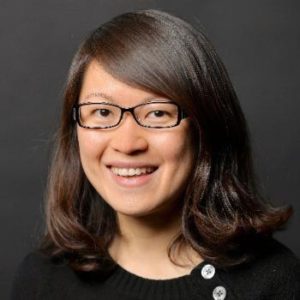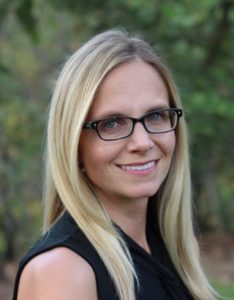
PHIND Seminar Series: Towards precision diagnostic and prediction of food allergy
Sindy KY Tang, Ph.D.
Associate Professor of Mechanical Engineering, Senior Fellow at the Woods Institute for the Environment and Professor, by courtesy, of Radiology – PHIND Center
Stanford University
Location: Zoom
Webinar URL: https://stanford.zoom.us/s/91932966334
Dial: US: +1 650 724 9799 or +1 833 302 1536 (Toll Free)
Webinar ID: 919 3296 6334
Passcode: 383071
11:00am – 12:00pm Seminar & Discussion
RSVP Here
ABSTRACT
Food allergy has reached epidemic proportions. Accurate in vitro methods that are efficient and easy to use to identify offending food allergens are lacking. Oral food challenge, the gold standard for food allergy assessment, is often not performed as it places the patient at risk of anaphylaxis. As such, food allergy is often identified only after an adverse reaction that could be life-threatening. Our long-term goal is to develop a food allergy diagnostic test that is accurate, safe, rapid, and accessible, so that food allergy can be easily identified prior to the occurrence of an adverse reaction, and that the efficacy of immunotherapy for food allergy can be tracked more effectively. This talk will discuss our recent work on developing such a test. Our approach is based on the Basophil Activation Test (BAT), which measures the activation of basophils in whole blood after stimulation with specific food allergens ex vivo. The BAT has been shown to be highly predictive of allergic reactions. However, the need for flow cytometry has limited its broader use. We are developing a miniaturized, standalone version of the BAT. We envision that the test can be used at the point of care, such as the doctor’s office or at a local pharmacy.
ABOUT
Prof. Sindy KY Tang is the Kenneth and Barbara Oshman Faculty Scholar and Associate Professor of Mechanical Engineering and by courtesy of Radiology (Precision Health and Integrated Diagnostics) at Stanford University. She received her Ph.D. from Harvard University in Engineering Sciences under the supervision of Prof. George Whitesides. Her lab at Stanford works on the fundamental understanding of fluid mechanics and mass transport in micro-nano systems, and the application of this knowledge towards problems in biology, rapid diagnostics for health and environmental sustainability. The current areas of focus include the flow physics of confined micro-droplets using experimental and machine learning methods, interfacial mass transport and self-assembly, and ultrahigh throughput opto-microfluidic systems for disease diagnostics, water and energy sustainability, and single-cell wound healing studies. She was a Stanford Biodesign Faculty Fellow in 2018. Dr. Tang’s work has been recognized by multiple awards including the NSF CAREER Award, 3M Nontenured Faculty Award, the ACS Petroleum Fund New Investigator Award, and invited lecture at the Nobel Symposium on Microfluidics in Sweden. Website: http://web.stanford.edu/group/tanglab/
Hosted by: Garry Gold, M.D.
Sponsored by the PHIND Center and the Department of Radiology

CEDSS: The First Cell: A new model for cancer research and treatment
Azra Raza, M.D.
Chan Soon-Shiong Professor of Medicine
Director, Myelodysplastic Syndrome Center
Columbia University Medical Center
Location: Zoom
Meeting URL: https://stanford.zoom.us/s/99340345860
Dial: US: +1 650 724 9799 or +1 833 302 1536 (Toll Free)
Meeting ID: 993 4034 5860
Passcode: 711508
ABSTRACT
Cancer research continues to be predicated on a 1970’s model of research and treatment. Despite half a century of intense research, we are failing spectacularly to improve the outcome for patients with advanced disease. Those who are cured continue to be treated mostly with the older strategies (surgery-chemo-radiation). Our contention is that the real solution to the cancer problem is to diagnose cancer early, at the stage of The First Cell. The rapidly evolving technologies are doing much in this area but need to be expanded. We study a pre-leukemic condition called myelodysplastic syndrome (MDS) with the hope that we can detect the first leukemia cells as the disease transforms to acute myeloid leukemia (AML). Towards this end, we have collected blood and bone marrow samples on MDS and AML patients since 1984. Today, our Tissue Repository has more than 60,000 samples. We propose novel methods to identify surrogate markers that can identify the First Cell through studying the serial samples of patients who evolve from MDS to AML.
ABOUT
Dr. Raza is a Professor of Medicine and Director of the MDS Center at Columbia University in New York, NY.She started her research in Myelodisplastic Syndromes (MDS) in 1982 and moved to Rush University, Chicago, Illinois in 1992, where she was the Charles Arthur Weaver Professor in Oncology and Director, Division of Myeloid Diseases. The MDS Program, along with a Tissue Repository containing more than 50,000 samples from MDS and acute leukemia patients was successfully relocated to the University of Massachusetts in 2004 and to Columbia University in 2010.
Before moving to New York, Dr. Raza was the Chief of Hematology Oncology and the Gladys Smith Martin Professor of Oncology at the University of Massachussetts in Worcester. She has published the results of her laboratory research and clinical trials in prestigious, peer reviewed journals such as The New England Journal of Medicine, Nature, Blood, Cancer, Cancer Research, British Journal of Hematology, Leukemia, and Leukemia Research. Dr. Raza serves on numerous national and international panels as a reviewer, consultant and advisor and is the recipient of a number of awards.
Hosted by: Utkan Demirci, Ph.D.
Sponsored by: The Canary Center & the Department of Radiology
Stanford University – School of Medicine

PHIND Seminar Series: Topic TBA
Christina Curtis, Ph.D.
Associate Professor of Medicine (Oncology) and of Genetics
Stanford University
Location: Venue coming soon!
11:00am – 12:00pm Seminar & Discussion
12:00pm – 12:15pm Reception
RSVP coming soon!
ABSTRACT
Coming soon!
ABOUT
Coming soon!
Hosted by: Garry Gold, M.D.
Sponsored by the PHIND Center and the Department of Radiology

PHIND Seminar Series: Male Infertility and the Future Risk of Vascular and CV Disease
Michael Eisenberg, M.D.
Associate Professor of Urology and, by courtesy, of Obstetrics and Gynecology
Stanford University Medical Center
Gary M. Shaw, Ph.D.
NICU Nurses Professor and Professor, by courtesy, of Health Research and Policy (Epidemiology) and of Obstetrics and Gynecology (Maternal Fetal Medicine)
Stanford University
Location: Venue coming soon!
11:00am – 12:00pm Seminar & Discussion
12:00pm – 12:15pm Reception
RSVP coming soon!
ABSTRACT
Coming soon!
ABOUT
Coming soon!
Hosted by: Garry Gold, M.D.
Sponsored by the PHIND Center and the Department of Radiology